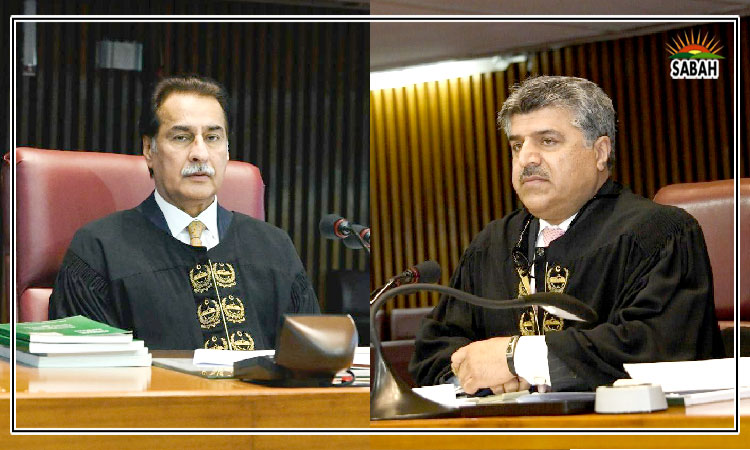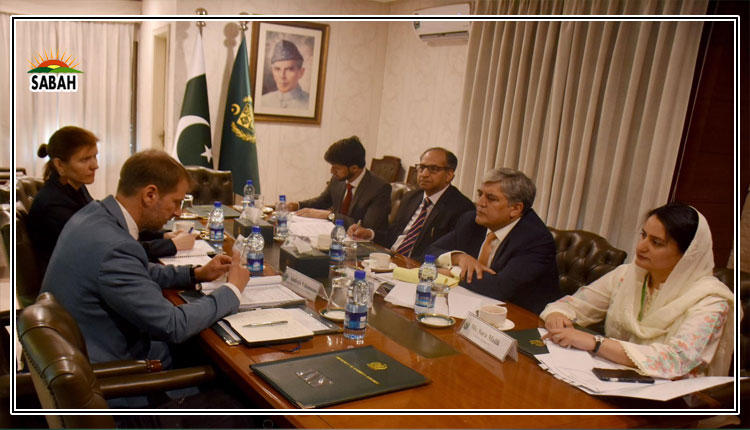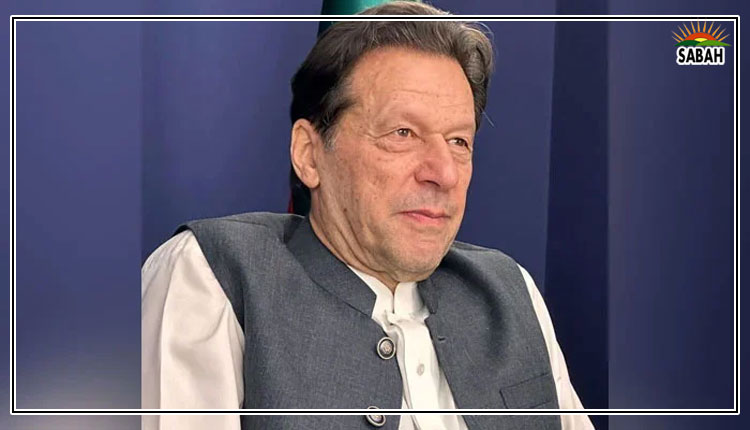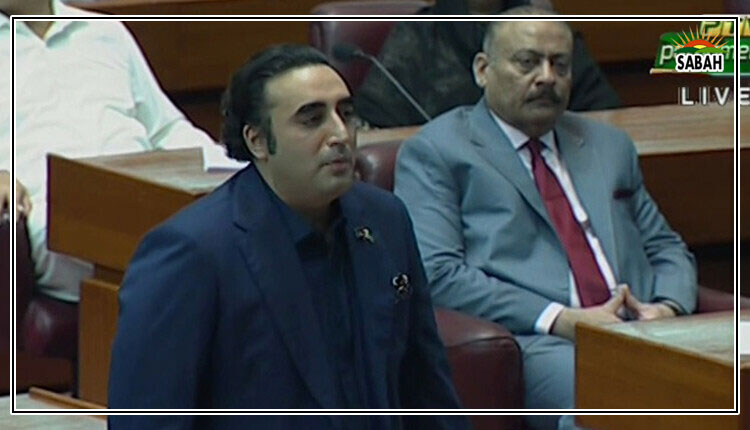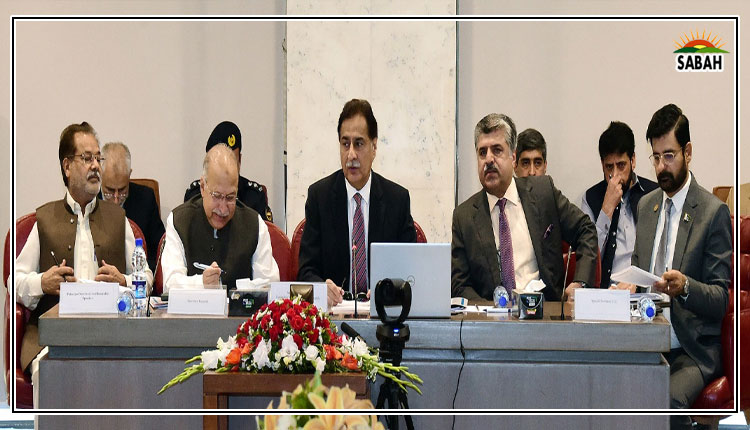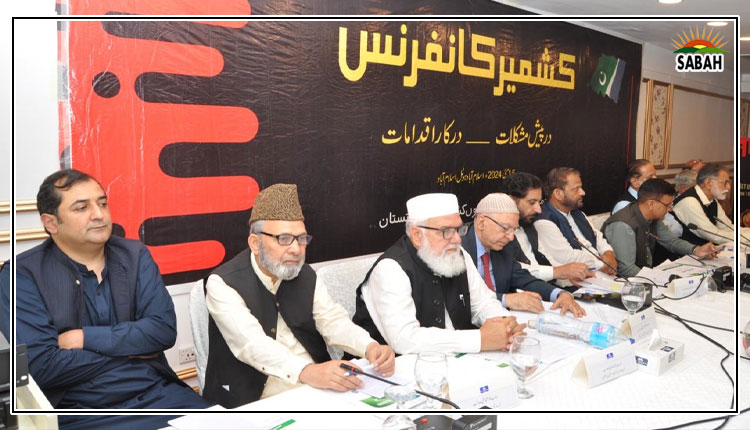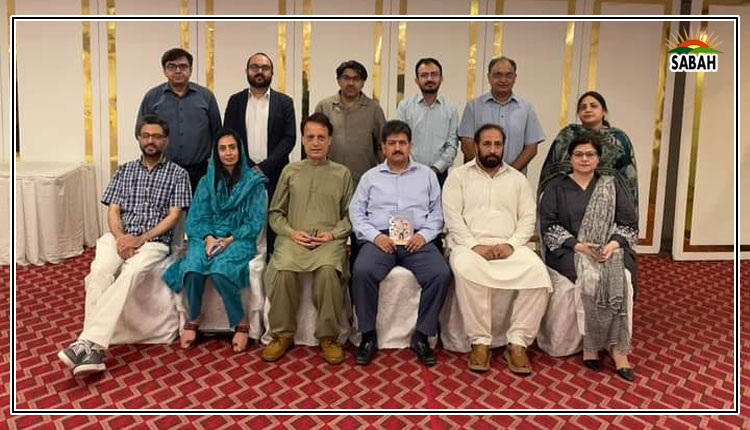Pakistan Journalists Safety Coalition asks PM Shehbaz to make federal law on protection of journalists operational
ISLAMABAD, June 16 (SABAH): Key media stakeholders have urged Prime Minister Mian Muhammad Shehbaz Sharif to urgently fulfill his pending promise of operationalizing the Federal Protection of Journalists and Media Professionals Act, passed in 2021, to allow journalists to combat impunity of crimes against them.
This appeal came in a meeting of the federal chapter of the Pakistan Journalists Safety Coalition (PJSC), a grouping of journalist representative bodies, national and international media watchdogs, human rights commissions, digital rights groups, human rights advocates and political parties, among others, in a meeting held in Islamabad.
The Pakistan Journalists Safety Coalition successfully influenced the process of the passage of the federal and Sindh legislations, both of which made Pakistan the first country in the world to specifically legislate on safety of journalists inspired by the UN Plan of Action on Safety of Journalists and Issues of Impunity. The PJSC is currently working with the Sindh Commission for the Protection of Journalists and Other Media Professionals.
The PJSC meeting also expressed concern at the ongoing wave of intimidation against journalists in the country and repeated attempts by both the previous and present governments to make media and free speech related laws and regulations more draconian.
The meeting pointed out that dozens of journalists have been arrested, kidnapped, assaulted, injured since the passage of the Federal Protection of Journalists and Media Professionals Act, passed in 2021, but were not able to benefit from it in the absence of a safety commission. It noted that both the Imran Khan and Shahbaz Sharif governments have failed to notify a commission and appoint a chairperson to operationalize the law.
It unanimously passed a resolution demanding the following from the federal government:
1. Prime Minister Shahbaz Sharif must fulfill the promise he made at an international conference in Islamabad in December 2022 to formally operationalise the Federal Protection of Journalists and Media Professionals Act, 2021, by urgently notifying the federal safety commission for journalists. The law was enacted 19 months ago – its non-operationalization continues to mock the extraordinary parliamentary consensus from all major parties that passed it, including by PML-N, PPP, PTI, JUI, ANP, MQM, PML-Q, BAP and others, and allows impunity of crimes against journalists to perpetuate itself, particularly in Islamabad.
2. The federal government must, as promised, start the process of removing Section 6 from the Federal Protection of Journalists and Media Professionals Act, 2021, which makes it mandatory on journalists to prove their “good faith and intent” if their journalism is challenged and before they can benefit from the law. Section 6 effectively nullifies the spirit of the otherwise excellent law. This “pre-qualification” clause must be removed from the law.
3. The federal government and its subordinate institutions must stop branding of journalists as traitors and enemies of the state and desist from invoking colonial-era laws and concepts in dealing with dissent and debate within the media landscape. This is having a chilling effect on Article 19 and 19A of the constitution and undermining the fourth pillar of the state and will worsen Pakistan’s already precariously poor rankings on global media freedom indexes.
4. The federal government must stop efforts to bring in any proposed regulations or legislation aimed at curbing freedom of expression and access to information and no changes in laws and rules and regulations related to and free speech, including online freedom of expression, must be made without broad-based consultations with all key relevant stakeholders.
5. All existing adversarial cases against journalists must be immediately withdrawn, allowing them due process of law, and journalist Imran Riaz, who has been missing for several weeks, must be produced before a court of law to allow him to defend himself in accordance with the law. No journalist should be arrested.
Among others, the meeting was attended by PJSC Federal Chapter Chairperson Hamid Mir, Chairperson Parliamentary Commission for Human Rights Chaudhry Shafique, National Press Club representative Saeed Ahmed, Women Journalists Association representative Myra Imran, Digital Media Alliance of Pakistan representative Adnan Amir, Alliance for Diversity and Pluralism representative Muhammad Aftab Alam, Freedom Network Executive Director Iqbal Khattak and International Media Support representative Adnan Rehmat.
Meanwhile Prime Minister Shehbaz Sharif while addressing an event to mark 10 years of the United Nations’ Plan of Action organized by Journalist Safety Forum on 6th December 2022 in Islamabad had said that media freedom and democracy reinforced each other and expressed his government’s resolve to support an environment for journalists free of intimidation and harassment.
“My government believes that no journalist or human rights activist should be called out in the line of duty,” he said, expressing his firm resolve to proactively facilitate the implementation of the ‘Journalists Safety Law.’ The Prime Minister termed a free media and freedom of expression the important pillars of a State.
PM Shehbaz Sharif said the press freedom in Pakistan had been close to the hearts of journalists and civil society. He said the journalists of the country over the years greatly contributed to press freedom and mentioned that Hamid Mir, as the chairperson of Journalist Safety Forum, faced difficult challenges including an attempt on his life.
He termed the killing of prominent journalist Arshad Sharif an extremely sad incident and said that he soon after spoke to the government of Kenya and later wrote a letter to the Chief Justice of Pakistan to form a judicial commission. Despite the chequered history with 33 years of military rule, the collective political efforts led to resumption of democracy to put the country on right track, he added.
He termed the 1973 Constitution a very sacred document which acts as a binding force among the units of the federation and ensured democratic values besides ensuring basic rights of citizens.
In 2013, he said, Pakistan became the first country in Asia to pass legislation on the safety of journalists and last year, the Parliament passed the landmark ‘Protection of Journalists and Media Protection Act’.
Shehbaz Sharif, on requests of the media community, assured to look into the Section 6 of the Act to prevent harassment and intimidation of journalists. He mentioned that there were still challenges facing the journalists in their line of duty and required sustained efforts by media, civil society, UN and international bodies.
He appreciated the contribution of international community in supporting economic and social development of Pakistan, particularly UNESCO and countries including Norway, Denmark and France.
He expressed confidence that the outcomes and recommendations of the Forum would help leading towards a free media in Pakistan.
Speaking on the occasion, Ambassador of France Nicolas Galey was appreciative of the legislation passed by Pakistani parliament for protection of journalists. He said this is a major step forward. He said his embassy will continue to promote media exchanges between Pakistan and France. Nicolas Galey said freedom of expression could not be termed as an obstacle in the working of a government and emphasized the need to promote safety of journalists, media pluralism, and the right to inform and be informed. He lauded Pakistan’s law on the safety of journalists as a significant step in encouraging freedom of expression.
Norway’s Ambassador to Pakistan Per Albert Ilsaas said the global community must ensure a safe environment for the journalists both online and offline. He said the Protection of Journalist and Media Professional Act by Pakistan is a major step towards ensuring the safety of journalists and media practitioners and protecting them from violence and harassment. Per Albert Ilsaas said best quality journalism provides proper information and ensure democratic values. Pakistani journalists, he said self-censored the content, which could otherwise be said directly, such the use of word establishment.
Alluding to the collaboration between Denmark and Pakistan in the field of media, Danish Ambassador to Pakistan Jakob Linulf said his country backs community journalism in Pakistan. He said our support goes to a growing eco system of media startups in the country. He said we recently arranged a visit of Pakistani journalists to Denmark to enhance their capacity to report on climate change. Jakob Linulf said it was crucial to promote freedom of expression and ensure a safe environment for journalists. He said Denmark backed the ‘community journalism’ in Pakistan. He congratulated Pakistan for its remarkable step to legislate on the safety of journalists, the first in Asia.
Chairperson Journalist Safety Forum and anchorperson Hamid Mir proposed that federal and Sindh governments must notify the safety commissions under the laws passed by the National Assembly and stressed passage of similar laws for the journalists of Khyber Pukhtunkhwa, Balochistan and Punjab.
He demanded immediate removal of the Section 6 from the Federal Journalists Safety Law, which acts as a pre-qualifier for journalist before benefiting from the law, and pointed out that it was mysteriously added to the final draft bill without the knowledge of journalists.
He called for taking journalists out of the purview of online expression through laws such as (Prevention of Electronic Crimes Act (PECA) or other regulations and emphasized support by the federal and provincial governments against attacks, intimidation and harassment of women journalists. The event was attended by journalists, human rights experts and representatives of national and international organizations.



